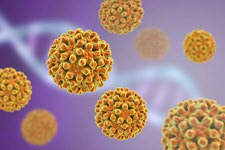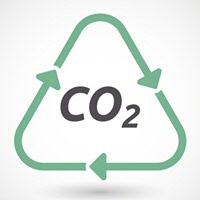Twee FSE-onderzoekers ontvangen NWO XS-subsidie
Twee onderzoekers van de Faculty of Science and Engineering hebben een XS-subsidie ontvangen van de Nederlandse Organisatie voor Wetenschappelijk Onderzoek (NWO). Wouter Roos ontvangt een subsidie voor zijn project ‘Scrutinising antiviral interactions in real-time at the single particle level’ en Daniel Sauer voor zijn project ‘FixCas - Artificial metalloenzymes in cascade reactions for CO2 fixation’. De subsidie bedraagt EUR 50.000.
Met de XS-subsidies wil de NWO nieuwsgierigheidsgedreven en gedurfd onderzoek stimuleren met een snelle analyse van een veelbelovend idee. Bijzonder daarbij is dat de aanvragers zélf de andere aanvragen beoordelen.
Prof. dr. Wouter Roos (Zernike Institute) | Scrutinising antiviral interactions in real-time at the single particle level

Terwijl door virussen veroorzaakte ziektes ieder jaar tot aan groot aantal overlijdens leidt, zijn er voor veel van deze ziektes nog geen adequate behandelingen. Potentiële antivirale middelen worden regelmatig ontdekt, maar vaak blijft het onduidelijk hoe deze antivirale middelen precies werken. Het doel van dit onderzoeksproject is om in detail (op het niveau van enkele virale deeltjes) te kijken hoe deze middelen werken. De resultaten van het onderzoek zullen de ontwikkeling van betere medicijnen tegen virale ziektes bevorderen.
Dr. Daniel Sauer (Stratingh Institute) | FixCas - Artificial metalloenzymes in cascade reactions for CO2 fixation

Klimaatverandering is zonder twijfel de grootste uitdaging waarvoor de mensheid op dit moment staat. In verband hiermee is het absoluut noodzakelijk om de hoeveelheid CO2 in de atmosfeer terug te brengen. Een van de mogelijke oplossingen is het gebruik van CO2 als bouwsteen voor de productie van nuttige en waardevolle chemicaliën. Echter de fixatie van CO2 is bijzonder moeilijk. In dit project wil Sauer een nieuw biokatalytisch cascade proces creëren, gebruikmakend van zowel natuurlijke als kunstmatige enzymen. Met dat proces wil hij CO2 fixeren en gebruiken voor de productie van salicyl zuur, een waardevol pharmaceutisch product.
Meer nieuws
-
10 februari 2026
Waarom slechts een klein aantal planeten geschikt is voor leven
-
09 februari 2026
Kunnen we de aarde de andere kant op laten draaien?
